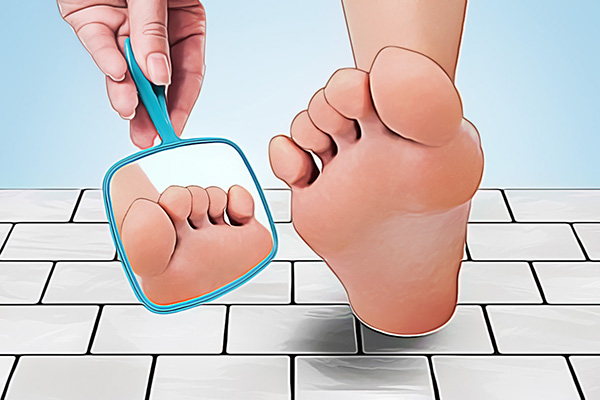- Empty cart.
- Continue Shopping
The Benefits of Regular Foot Checks for Diabetic Health

Diabetes is a chronic condition that affects millions of people worldwide, bringing along a host of complications that can impact various parts of the body. One area that often gets overlooked is foot health. Poor blood circulation and nerve damage, common in diabetes, can lead to severe foot problems if not properly managed.
Why Foot Health Matters in Diabetes
Reduced Sensation
Diabetes can cause peripheral neuropathy, a condition that leads to reduced sensation in the feet. This makes it difficult to feel pain, heat, or cold, increasing the risk of unnoticed injuries.
Poor Circulation
Diabetes often leads to poor blood circulation, which can slow down the healing process for cuts, sores, or infections on the feet.
Increased Risk of Infections
High blood sugar levels can weaken the immune system, making it harder to fight off infections. A minor foot injury can quickly escalate into a serious issue if not addressed promptly.
Benefits of Regular Foot Checks
Early Detection of Problems
Regular foot checks can help in the early detection of issues like cuts, sores, blisters, or signs of infection. Early intervention can prevent complications and speed up the healing process.
Improved Quality of Life
Proactive foot care can significantly improve the quality of life for individuals with diabetes. It can prevent debilitating issues that could lead to immobility or even amputation in severe cases.
Cost-Effectiveness
Preventive care is often more cost-effective than treating complications. Regular foot checks can save you from expensive treatments and hospital stays down the line.
Guidelines for Effective Foot Checks
Daily Inspection
Inspect your feet daily for any signs of injury, redness, swelling, or infection. Use a mirror to check the soles of your feet, or ask someone to help you if you’re unable to see clearly.
Moisturize
Dry skin can crack and create an entry point for infection. Use a diabetic-friendly moisturizer to keep your skin hydrated but avoid applying it between the toes, as excess moisture can lead to fungal infections.
Proper Footwear
Wear comfortable, well-fitting shoes that provide good support and cushioning. Avoid tight or ill-fitting shoes that can cause blisters and sores.
Professional Check-ups
In addition to self-checks, have your feet examined by a healthcare provider at least once a year, or more frequently if you have a history of foot problems.
Blood Sugar Management
Keeping your blood sugar levels in check can go a long way in preventing foot complications. Follow your healthcare provider’s guidelines for managing your diabetes effectively.
Conclusion
Foot health is an often-overlooked aspect of diabetes management, yet it’s crucial for preventing severe complications. Regular foot checks offer numerous benefits, from early detection of problems to improved quality of life and cost savings. By incorporating foot checks into your daily routine and following guidelines for effective foot care, you can take a significant step towards better management of your diabetes. Remember, when it comes to diabetes, every part of your body deserves attention, and your feet are no exception.








